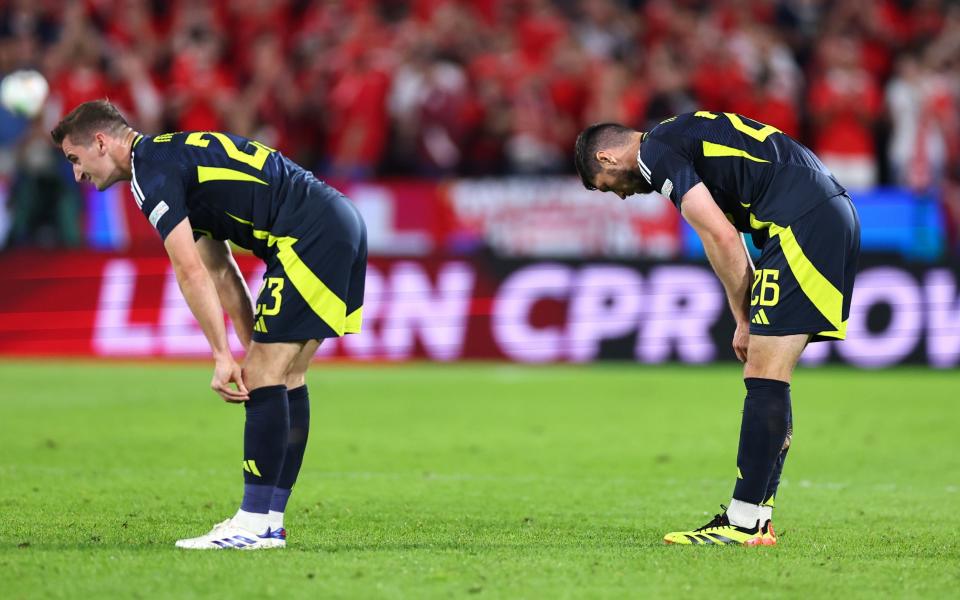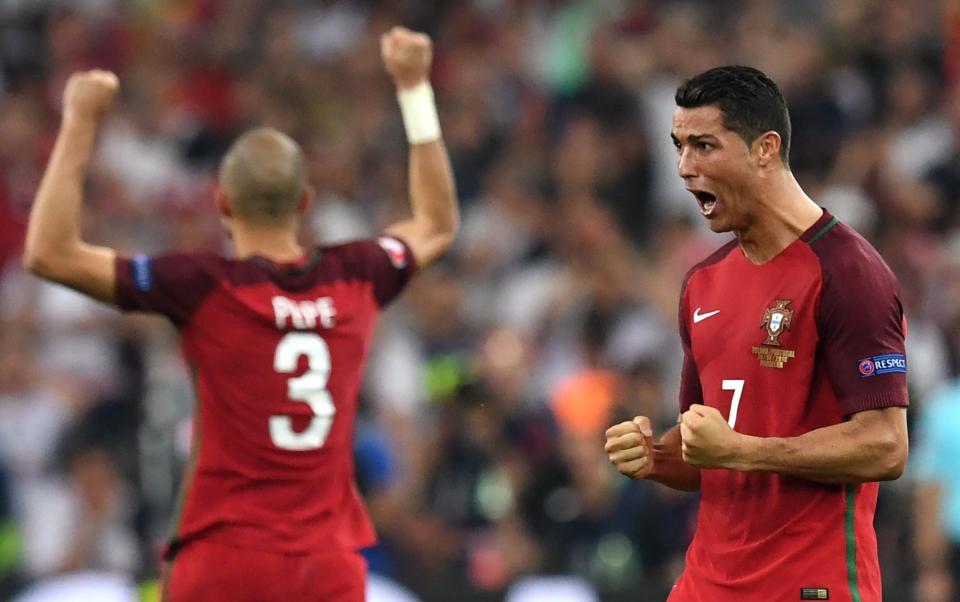Euro 2024 format is not fair as Scotland are now discovering

Late into Sunday night’s game in Stuttgart, Scotland are drawing with Hungary. The result would mean that Scotland finish third in their group. But would it mean that Scotland advance to the second round of the European Championship? Scotland wouldn’t know.
When Scotland were drawn in Group A of the European Championship, their chances of qualifying for the second round were significantly reduced. The problem was not who Scotland would face but when.
Group A is the first group to be completed. Should Scotland draw or win against Hungary on Sunday night, they will end the group in third place, but without any knowledge about whether this is enough to advance to the last 16.
It encapsulates an absurdity of the European Championship. It doesn’t just matter which teams you are drawn against. It also matters what letter your group is.
The fairness of sports depends on the principle that all teams must abide by the same rules. This is why doping, bribing opponents or referees or, indeed, breaching Financial Fair Play rules distort the entire competition.
Sporting integrity also depends upon symmetry of information – the idea that all teams must have equal knowledge about what the outcomes of results could be. Matches are played out in unison on the final day of each league season to prevent the sides that play last from having an unfair advantage.
Yet this principle does not apply to the 24 teams at the European Championship. Sixteen teams proceed to the second round – the top two in each group, and four of the six best third-placed sides, a process that sacrifices sporting integrity.
In two previous editions of the 24-team Euros, one winner owed their victory in part to being drawn in Group F. In 2016, after draws with Iceland and Austria in their opening two matches, Portugal knew that another draw, against Hungary, would be enough to squeeze into the last 16 in third place. When the score was level at 3-3, Portugal could be content, guaranteed that such a score would send them through; Hungary, who were on course to win the group in the event of a draw, had no need to press for a goal either.
Had Portugal’s game been in Group A, their calculation would have been very different. A draw would have left Portugal on three points – at risk of four other third-placed teams finishing on more points, thereby eliminating them. Perhaps Portugal would have accepted their fate being in the hands of others. But perhaps this fear would have Portugal to attack recklessly in the last throes of the game, risking conceding another goal and tumbling out of the competition.
By being in Group F, Portugal were free of such unpalatable choices. So they were at Euro 2020 – once again in Group F, and again drawing their last group game to qualify in third place. In Euro 2024, Portugal are, as if by birthright, in Group F once more.

History attests to how being in the final group to play their matches boosts teams’ chances of qualification. As well as two European Championships, three World Cups, from 1986-94, have used the model of 16 out of 24 teams qualifying for the second round. In all five such tournaments, a third-placed team from the last group to play has progressed.
The format increases the risks of teams colluding, even if only implicitly. “If the last game of the group stage is between the teams that have one win and one loss in the first two rounds, both teams might benefit from a draw,” explains Alex Krumer, a Professor of Sports Economics at Molde University College.
Third-placed teams progressing creates risk of an affair similar to the Disgrace of Gijón in 1982. In the last game of the group, West Germany and Austria knew that they would both advance, with Algeria eliminated, if West Germany won 1-0. West Germany scored early; both sides made little pretense of trying to score thereafter. The result duly came to pass.
Even after the knockout stages of the Euros begin, they will still be shaped by the peculiarity of third-placed teams advancing. While four of the six group winners have the advantage of playing third-placed sides, who are likely to be weaker, the other two must face teams who were runners-up. Such “unbalanced brackets”, Krumer says, mean that “the elimination stage is unfair”.
The labyrinth rules have other victims: fans. Should Scotland end Group A in third place, they will be left in a curious sporting purgatory. For 72 hours, Scotland will be neither in the competition nor out, awaiting the results in other groups. The opacity of the format also leaves supporters planning trips for the knockout stages unclear about which games that they might see. In this year’s second round, the winner of Group B will play the third-placed team in either Group A, D, E or F.
Yet the failings in how the Euros are structured will now be seen more often. From 2026, the World Cup will expand to 48 teams. The format will be similar to the Euros, only with twice as many countries. Thirty-two sides will advance to the knockout stages: the top two in each group, plus eight of the 12 third-placed sides. The Euros require 36 games to eliminate only eight teams. The World Cup will take all of 72 matches to knock out just 16 countries.
For the Euros, there is one solution: further expansion in the size of the tournament. By increasing to 32 teams, the format could regain transparency and sporting integrity. The expansion could be tied to changes in qualification; perhaps the last 16 in each tournament could automatically qualify for the next. Standards in the Euros would be diluted relatively little by the extra eight nations: even with Erling Haaland and Martin Odegaard, Norway are absent in Germany.
More extra teams would also mean more initial jeopardy: half of competing nations would be eliminated in the group stages, with no third-placed teams qualifying. Most importantly, it would restore simplicity to the tournament – ensuring less focus upon arcane calculations, and more on the football itself.

 Yahoo Sport
Yahoo Sport 






































